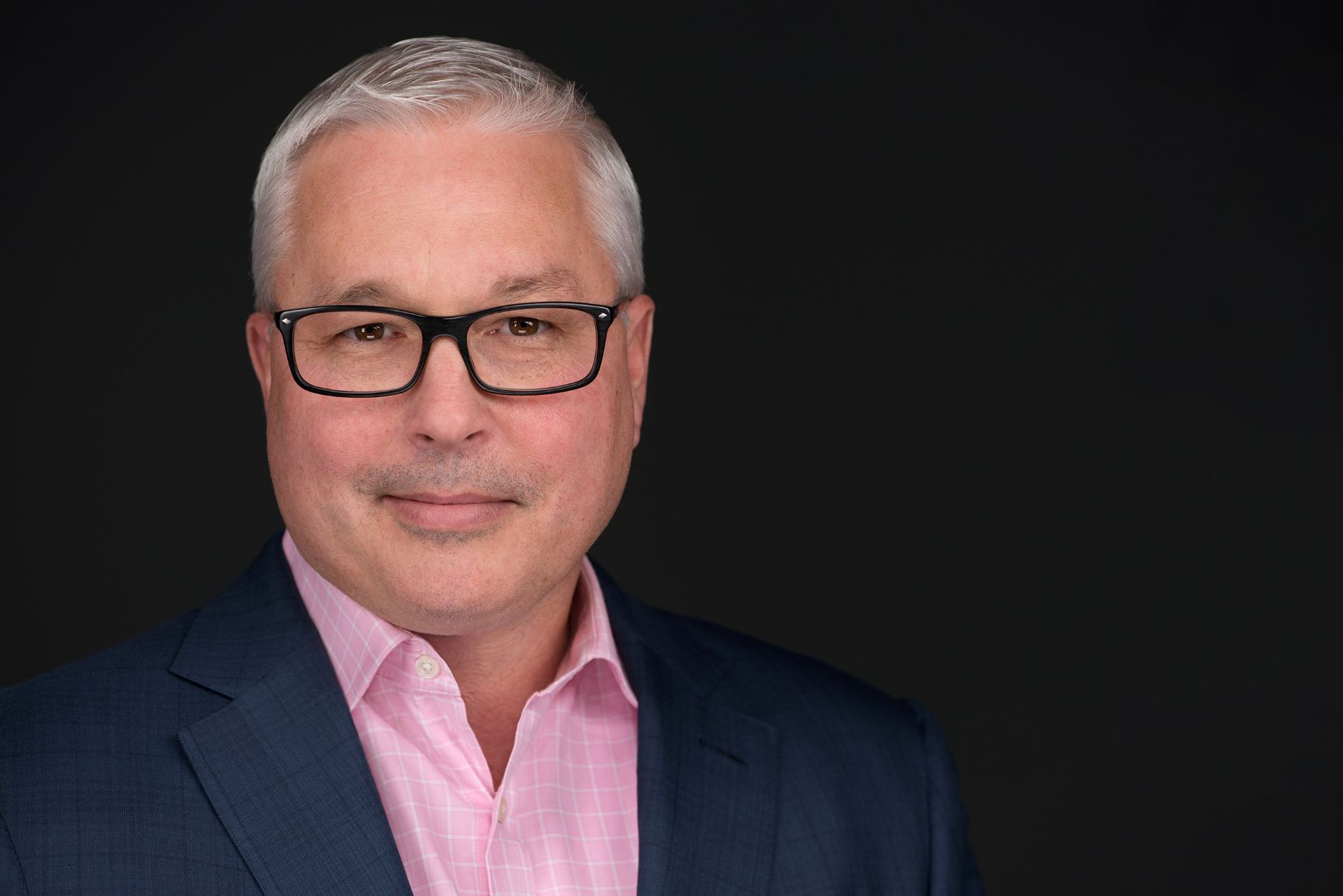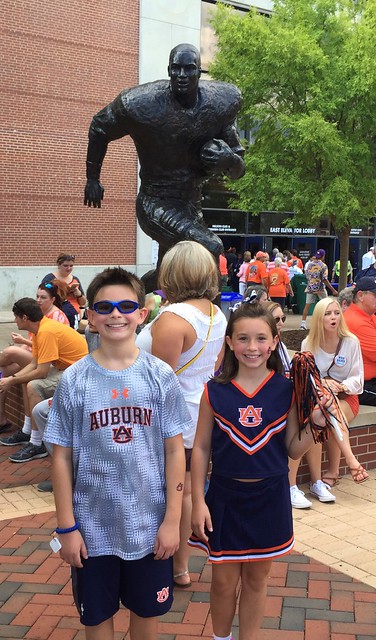Auburn COSAM alum dedicated to curing diseases with new gene therapy venture
Article body
Auburn alum Bo Cumbo is dedicated to saving the world – by defeating one rare disease at a time.
The 1994 laboratory technology graduate is busy building his newest gene therapy venture, AavantiBio, as he puts more than a quarter century of experience to work fighting rare or specialty diseases. Buoyed by $107 million in funding from private investors, industry leaders and former employers, Cumbo is unleashing AavantiBio on several of the more than 7,000 rare diseases he says are still without a cure.
“My eyes are on hiring researchers, Chemistry Manufacturing and Controls and regulatory staff, moving our products forward, raising more money, then taking the company public while building a gene therapy, transfer, gene editing company for the future,” Cumbo said from his company’s headquarters in Boston. “I plan on building a company that can really tackle some very innovative approaches to hard disease states.”
Cumbo brings a wealth of experience and knowledge to the helm of AavantiBio after spending 26 years in the field in various roles. After graduating from Auburn, he held commercial roles at Gilead Sciences, then moved on to Vertex Pharmaceuticals—where he rose to the title of vice president of sales—and finally Sarepta Therapeutics Inc., where he served as chief commercial officer.
“I’m not a scientific expert, I’m a scientific operator,” said Cumbo, who received a $15 million investment from Sarepta for his new venture. “I’ve been in the industry for 26 years now, and it’s one of those worlds where, if you move up too quick, it’s hard to succeed because you don’t have the knowledge base. I have wide base of knowledge, which has been helpful.
“But you really have to build out a team of experts, and the good news is, I know how to build them out.”
First up for Cumbo and AavantiBio is Friedreich’s Ataxia, or FA, a rare, inherited neuromuscular disease caused by mutations in a gene called FXN that leads to impaired muscle coordination and maladies with the heart and central nervous system. Cumbo said the disease affects between 7,000-9,000 people in the United States and 20,000-30,000 in Europe.
“Most FA patients die from cardiomyopathy and heart failure,” said Cumbo, who added that FA also figures prominently in South Asia, the Middle East and North Africa. “It’s a terrible disease, and there’s no cure or drugs for it.
“I’m trying to build a company where we transfer a new gene into the patient and replace the defaulted gene that’s unable to create a protein that’s needed for healthy mitochondria. If we do that, then we can change the course of these patients’ lives, and that’s what our goal is.”
The new venture is a shift in focus from large-scale, much-publicized diseases to lesser-known obscure afflictions that are as complex as they are rare. The fact that they are often overlooked is what motivates Cumbo to focus his company’s attention on that segment of diseases.
“You run to where the fire is,” Cumbo said. “If you’re trying to help people, you don’t go to disease states that have 10-15 drugs and chronic therapies. You run to disease states where people need help and where you can make the biggest impact possible if you’re able to achieve your goals. That’s why I started in HIV, and then I went to Hepatitis C and then Duchenne Muscular Dystrophy.
“I moved from the bigger diseases like HIV and Hepatitis C to rare diseases because a lot of times people do not have a voice. The diseases are so rare that you don’t have the mass of people to raise the alarm that something needs to be done, so, you go and try to help people who do not have a voice for themselves.”
Shaped by Southern upbringing
Cumbo’s desire to help others, he says, comes from positive examples set by his mother, a social worker named Ruth Ann, and father, Steve, an electrical engineer who passed away in 2016. Their tutelage, coupled with an inherent sense of community that is common in the South, molded Cumbo into a considerate and caring person.
“It’s always been there,” Cumbo said of his desire to make the world a better place for those in need. “Everyone in the South is so nice, we’re always courteous and we always try to help others. I think it was my upbringing in the South, to be honest, because a lot of people in the South care about their neighbors.
“I just took it to a different level, I guess, and have wanted to help those who can’t help themselves.”
Like most kids growing up in Alabama, Cumbo had to make an important decision on the Auburn-Alabama front early on. The Alabaster native chose the orange and blue.
“I was 5, and I had to pick sides,” said Cumbo, whose sister, Piper, followed him to the Plains. “I picked Auburn and never looked back.”
Cumbo said he ascribed to the “five-year plan” at Auburn after changed his major from pharmacy to laboratory technology in the College of Sciences and Mathematics, or COSAM, after arriving in Auburn.
“I wanted to go into pharmacy heading into college, and Auburn had a great pharmacy school and still does,” said Cumbo, whose children, Dylan and Bailey, plan to attend Auburn some day. “So, I went to Auburn to go into pharmacy school and then changed my major and ended up in laboratory technology. I had a great time and learned a lot, and it really helped me appreciate the sciences.”
Being able to shift his major mid-stream and learn in a welcoming environment Auburn provided was crucial for Cumbo.
“I had a great time learning,” said Cumbo, who served as fraternity president of Tau Kappa Epsilon for two years while at Auburn. “I probably should have studied a little bit harder, but I was enjoying college, I was enjoying life. The scientific classes were very well-done, and the teachers were great. They taught you a lot and kept it interesting, and that kept me interested in science.
“I knew I didn’t want to be a pharmacist once I was there, and I had a lot of other routes to go. I think that was important. Once I came to the conclusion that this was not best for me, I was able to look at multiple different choices and find a path that was good for me.”
Building a career, enjoying successes
After dabbling in the pharmaceutical realm for a couple years post-graduation, Cumbo shifted gears and found a passion project at Gilead—HIV care. At Gilead, Cumbo helped in the fight against the virus, and he and his colleagues were able to make great strides for HIV patients.
“I helped launch 10 or so HIV drugs over the course of my career, and by the time I left Gilead in 2010, HIV was a very different disease,” he said. “It was no longer life-ending and was a chronic disease that can be lived with.”
From there, Cumbo moved to Vertex and the quest to combat Hepatitis C. Cumbo helped Vertex launch a blockbuster drug called Incivek, a process that was featured in a Barry Werth book called “The Antidote.”
Cumbo’s longest tenure came at Sarepta, where he oversaw business development and global commercial. He helped Sarepta evolve from a ribonucleic, or RNA, therapy company into one of the world’s largest gene therapy companies with a market capitalization of more than $13 billion.
Those successes, coupled with Cumbo’s reputation in the industry, inspired a host of major players to approach him about starting AavantiBio.
“I knew a lot of the researchers, and I knew the space, and some investors like Bain Capital, Perceptive Capital and RA Capital came to me and said, ‘Would you like to build a gene therapy company from scratch based on the FA program with Dr. Barry Byrne?’” Cumbo said. “I said, ‘Yes.’ So, here I am building a company, and we have raised $107 million and am going to raise a lot more.”
Cumbo has hired roughly 20 employees who helped him establish a headquarters in Boston and laboratories in Gainesville, Florida. His goal is to grow the staff to between 60-75 by the end of the year and have a drug ready to present to the Food and Drug Administration, or FDA, for approval in a year’s time.
“Our goal is to have an IND, which is an investigational new drug, submitted to the FDA by year-end or early 2022,” said Cumbo, who has already begun talking to researchers about finding cures for three to four other rare diseases. “That opens our Phase 1 study, and that’s the initial study for safety and efficacy for patients. That would happen in the first half of ’22.”
It is an exciting time for Cumbo and his colleagues, and he expects big things in the coming years.
“I think we’re on the cusp of a genetic revolution,” Cumbo said. “Whether it’s gene therapy, gene editing, non-viral vectors, endosomes or mRNA, I really think the field is exploding with knowledge. The winners are going to be families in the future.
“Just get behind the science, because it’s going to be a critical player in the next decade. The future is going to be bright.”
And Cumbo wants himself and AavantiBio to be a major player in that future landscape.
“I’m just trying to do my part,” he said. “I’m only one person, and we need a lot of other people in rare disease research to help others. There’s a lot of press out there for the bigger disease states, but where we can really make a huge difference in people’s lives is by tackling these rare diseases.
“We can’t change the world without starting to change one disease at a time.”
Related Media
Media interested in this story can contact Communications Director Preston Sparks at (334) 844-9999 or preston.sparks@auburn.edu.
Auburn University is a nationally ranked land grant institution recognized for its commitment to world-class scholarship, interdisciplinary research with an elite, top-tier Carnegie R1 classification, life-changing outreach with Carnegie’s Community Engagement designation and an undergraduate education experience second to none. Auburn is home to more than 30,000 students, and its faculty and research partners collaborate to develop and deliver meaningful scholarship, science and technology-based advancements that meet pressing regional, national and global needs. Auburn’s commitment to active student engagement, professional success and public/private partnership drives a growing reputation for outreach and extension that delivers broad economic, health and societal impact.







